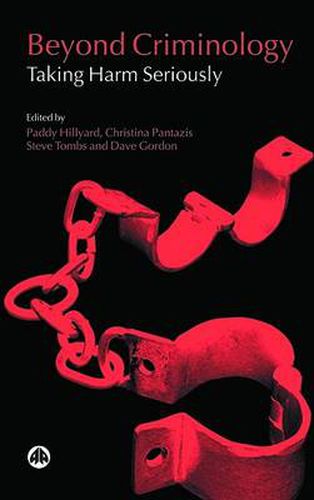Readings Newsletter
Become a Readings Member to make your shopping experience even easier.
Sign in or sign up for free!
You’re not far away from qualifying for FREE standard shipping within Australia
You’ve qualified for FREE standard shipping within Australia
The cart is loading…






Beyond Criminology is an innovative, groundbreaking critique of conventional criminological approaches to social issues. The contributors make a broad analysis of social harm examining the theoretical issues, and then looking at harmful organisations, policies and experiences. Using this approach, the contributors show how social harm relates to social and economic inequalities that are the heart of the liberal state. Only once we have identified the causes of social harm, they argue, can we begin to formulate possible responses, whether criminological or political. Exploring a range of topics including violence, indifference, corporate and state harms, miscarriages of justice, gender and harm, children, asylum and immigration policies, and sexuality, the contributors offer an innovative new approach that goes beyond criminology that should be of interest to students, teachers and policy-makers.
$9.00 standard shipping within Australia
FREE standard shipping within Australia for orders over $100.00
Express & International shipping calculated at checkout
Beyond Criminology is an innovative, groundbreaking critique of conventional criminological approaches to social issues. The contributors make a broad analysis of social harm examining the theoretical issues, and then looking at harmful organisations, policies and experiences. Using this approach, the contributors show how social harm relates to social and economic inequalities that are the heart of the liberal state. Only once we have identified the causes of social harm, they argue, can we begin to formulate possible responses, whether criminological or political. Exploring a range of topics including violence, indifference, corporate and state harms, miscarriages of justice, gender and harm, children, asylum and immigration policies, and sexuality, the contributors offer an innovative new approach that goes beyond criminology that should be of interest to students, teachers and policy-makers.